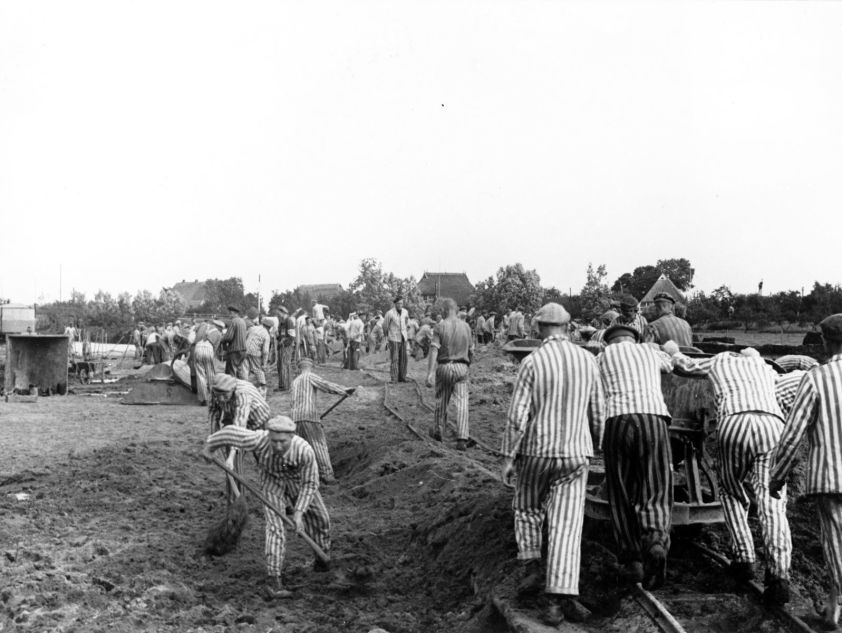The Neuengamme Concentration Camp Trial began on 18 March 1946. It became one of the 329 Royal Warrant trials the British held for Nazi criminals.
Neuengamme was the largest network of concentration camps in north-west Germany that came under the British Zone of Occupation. During the war, it was believed that prisoners in these camps were only used as labourers and were treated more humanely than elsewhere. However, British investigators found evidence of numerous mass executions, including of Soviet prisoners of war, and medical experiments on inmates.
In spring 1946, the first of 33 trials against the staff of this camp network took place in the Curiohaus prison in Hamburg. SS Unterscharführer Wilhelm Bahr stood out in the first trial. He had personally gassed almost 200 Soviet prisoners of war with Zyklon B, murdered hundreds of prisoners with petrol injections, and experimented with hydrogen cyanide. Bahr fully admitted his guilt.
On 3 May 1946, Bahr, along with former Neuengamme concentration camp commandant Max Pauly, SS Doctors Bruno Kitt and Alfred Trzebinski, Protective Custody Camp Leader Anton Thumann, and camp officers Johann Reese, Willy Warnke, Heinrich Ruge, Andreas Brems, Wilhelm Dreimann, and Adolf Speck, were sentenced to death by hanging.
The sentence was carried out on 6 October that year. The British hereditary executioner Albert Pierrepoint, who executed these men, later became an opponent of the death penalty. In his memoirs, he wrote: “When you have hanged more than 680 people, it’s a hell of a time to find out that you do not believe capital punishment achieves anything.” However, he also noted that after the execution of these Nazis, even he felt physically better, as one does after hard but essential work.
Sources:
























